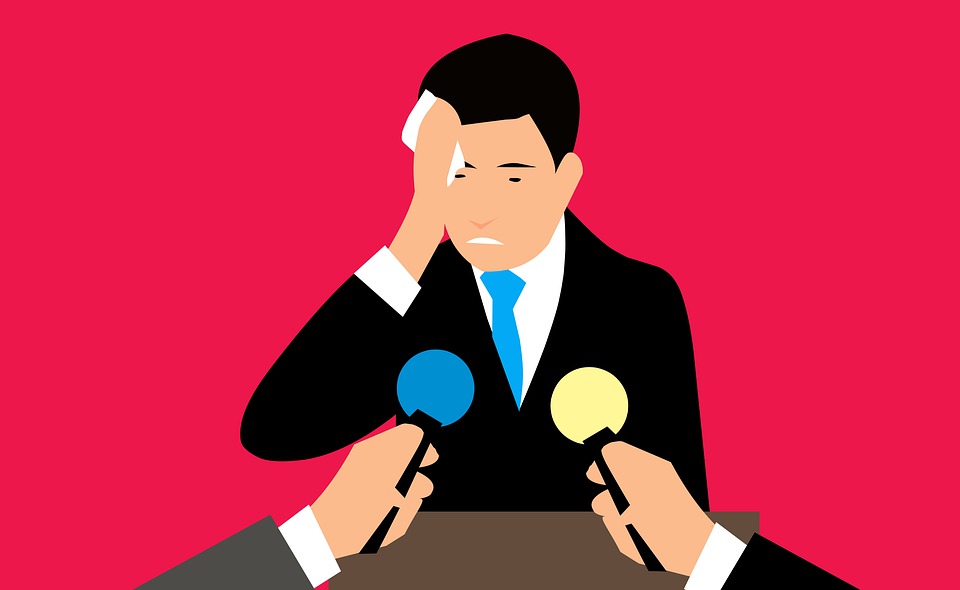Performance anxiety (or stage fright) is a subset of glossophobia — the fear of public speaking. It’s estimated that 77% of the population suffers from some level of anxiety regarding public speaking. Some physical symptoms of this are sweating, increased heart rate, and muscle tension. This can also manifest behaviorally through stuttering.
How performance anxiety and stuttering are connected
Some people are clinically diagnosed with stuttering. This means they need help to break communication barriers as they struggle with language and/or speech. With some assistance and knowledge in aspects like speech science and language development, they can control their stutter. However, it’s a different case with people who stutter because of performance anxiety. The condition is characterized by certain thought patterns and feelings — such as an underestimation of your capabilities, unrealistic assessment of what’s expected of you, and a fear of failure.
If you dwell on these negative thoughts and feelings, they may manifest physically and behaviorally. And when you end up stuttering during your performance or talk, it will only worsen your performance anxiety. This will also only exacerbate your stuttering.
Fortunately, there are ways to help you manage performance anxiety to lessen your stuttering. Below are a few of them:
Tips to manage performance anxiety
Rehearse
Being familiar with your material before going onstage can help manage your stage fright because you’ll already know what and how to say your piece, together with any actions you’ve practiced it with. Because of this, you’re at least sure that you can deliver what is needed. If you can’t rehearse at the venue, you can practice in front of a comfortable audience, such as friends or family members. This way, you can get some feedback that can help you improve your performance. But if you’re dealing with impromptu speaking, you’ll need to practice how to carry yourself across different situations. For instance, some tips to remember when doing improvisation include personalizing your speech and talking conversationally but with authority.
Get enough sleep
Rehearsing and conditioning yourself is great. But it’s not something you should do until the very last minute. Losing sleep over practice won’t help your presentation go any smoother. In fact, sleep deprivation can negatively affect brain function and memory. You’ll have trouble memorizing, remembering, and focusing. This is because the brain isn’t given enough time to create new pathways for what you’re memorizing. Lack of sleep also means you’ll have poorer emotional and behavioral control. This can make it harder to manage stage fright. And if you find you’re having a difficult time calming yourself down, and you’re possibly forgetting bits of what you’ve rehearsed, then your performance anxiety might get worse. Because of that, ensure you get around eight hours of sleep before your big day.
Avoid caffeine
Even if coffee is an important part of your daily routine, you should avoid it the day of your performance, if possible. Although it will wake you up, it will also increase your nervousness — especially if you’re already a nervous speaker in the first place. Caffeine increases heart rate and blood pressure. And instead of using deep breaths and other relaxation techniques, you’ll need to wait until the caffeine is out of your system to calm down. Aside from this, you might experience a caffeine crash before you need to be onstage. This means you’re tired, sluggish, and unfocused, which can worsen stage fright. So drink water instead. Aside from keeping you hydrated, it has natural calming effects too.
Specially written for VirtualSpeechCoach.com
By: Reann Jianna

